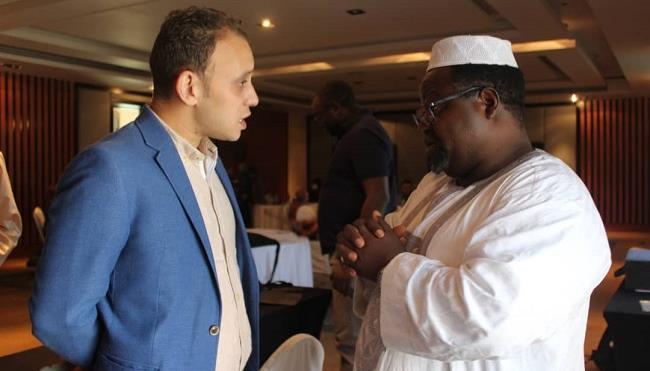The Pan African Climate Justice Alliance (PACJA) and the Germanwatch have jointly launched a project in Egypt meant to strengthen the role of civil society groups in the promotion and implementation of sustainable energy transition initiatives as well as renewable energy.

The “Ensuring a People-Centered Energy Transition in Africa Through Civil Society Engagement” project has been informed by the fact that the global energy poverty is now concentrated in Sub-Saharan Africa (SSA).
“Lack of energy access, particularly in rural Africa has prevented our women from leading more productive lives. Instead, it has expanded inequality gaps, and increasing a wide range of social injustices,” said Augustine Njdamnshi, chair of Technical and Political Committee, PACJA.
Njdmanshi said the acute energy poverty affects many developments and environmental outcomes is lowering the region’s chance of attaining the Sustainable Development Goals (SDGs).
For example, added Njdamnshi, the lack of access to energy is affecting the continent’s services in health, household income, quality of life, access to modern services such as ICTs, as well as human capital development, productive land and forest use.
Currently, around one in two citizens of sub-Saharan African countries, roughly 75% of the global total, have no electricity. And a staggering 80% of the population (about 800 million people) lacks access to modern energy, and rely on biomass products such as wood, charcoal, and dung to cook.
According to the experts meeting in Egypt, access to clean, sustainable and modern energy services is needed to meet basic human needs and for economic and social development across Africa. Increased access to energy, ‘can unlock sustainable economic growth, improve human health and well-being and enable women and children to lead more productive lives.
However, the inequality gaps across Africa is on the rise as women and girls spend more hours searching for wood fuel far from their homes and thus easily become victims of physical and sexual abuse.
According to Mithika Mwenda, the Executive Director, PACJA, the project will equip CSOs with skills, knowledge and tools to engage in renewable energy policy development and strengthen their voice at the domestic, continental and global levels. The project will also ensure that CSO engagement is more coordinated, through the strengthening of the Africa Coalition for Sustainable Energy and Access (ACSEA).
On the positive note however, there is rising political will to have the situation reversed. Of the 53 submitted Nationally Determined Contributions (NDCs), all but one mention renewable energy contributions. Many of these contain rural-development and pro-poor renewable energy contributions, such as the electrification of rural areas.
The expansion of the Renewable Energy initiatives, however, present risks. Mwenda noted that the many REIs in Africa lack coordination and transparency; often exclude important stakeholders, particularly of the civil society; and are poorly governed.
“This leaves room for unnecessary redundant efforts, programme and project duplications; a narrow focus on certain RE solutions and countries; and the absence of independent means of monitoring and tracking their performance. In turn, these shortcomings undermine the effectiveness of RE initiatives in delivering transformative and sustainable energy access, especially for the poor,” he said.
To address this problem, the PACJA and Germanwatch are implementing the project to strengthen the role of civil society in the promotion and implementation of sustainable energy transition initiatives as well as renewable energy related NDC commitments in five African countries.
The project will equip CSOs with skills, knowledge and tools to engage in renewable energy policy development and strengthen their voice at the domestic, continental and global levels. The project will also ensure that CSO engagement is more coordinated, through the strengthening of the ACSEA.
